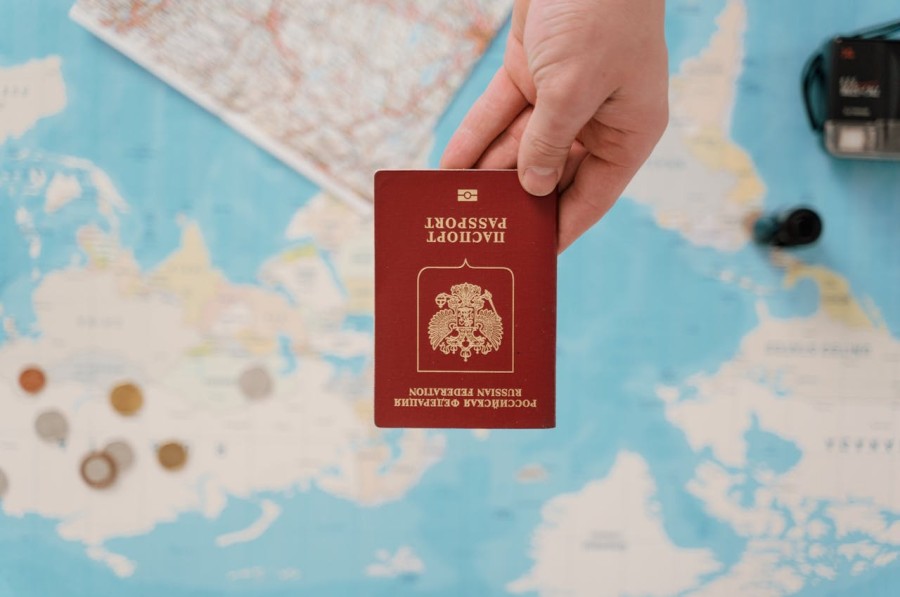Pros and cons of living as an expat

By participating in the Au Pair program, you will become an expatriate. This, within the framework of the program, will be a temporary experience. However, if you decide to extend your adventure, it will certainly help you a lot to know the pros and cons of living permanently in a foreign country.
At AuPair.com, we like to help you set realistic expectations and prepare for possible challenges, that's why we have compiled a list of the pros and cons of becoming an expat. Take a look below.
What is an expat?
 Considering that in our native country lie our home, our roots, and our childhood memories, the term expatriate may sound like a banishment, but relax, it's nothing like that. An expat is a person who, for professional or academic reasons, decides to live in a country of a different nationality than his or her own. This stay is usually temporary, although there are also people who decide to make a foreign country their permanent home.
Considering that in our native country lie our home, our roots, and our childhood memories, the term expatriate may sound like a banishment, but relax, it's nothing like that. An expat is a person who, for professional or academic reasons, decides to live in a country of a different nationality than his or her own. This stay is usually temporary, although there are also people who decide to make a foreign country their permanent home.
What are the cons of being an expat?
This time we decided to save the best for last and start with the cons:
The bureaucracy and costs of moving
Depending on the country you choose, you may need a visa, notarized and translated personal documents, medical insurance, a work, or study permit, and some additional documents depending on the requirements of the embassy. All this paperwork typically takes months to be completed and can cost you a considerable amount of money.
In addition, you will have to take into account flight, accommodation, and food expenses (although, as an Au Pair, you can save a lot on those ;) ). It is an expensive process for some people and may require you to dip into your savings to make it happen.
Being away from family
In our home country, we usually live with family and friends who represent not only our social circle but also our community of support. If we get sick, feel lonely, or simply want to spend time with people we love, distance is not an issue. Those connections are close at hand.
However, as an expat, cultural and linguistic barriers can cause us to become isolated and find it difficult to make friends. As a result, it is normal for some people to develop nostalgia and homesickness.
In some environments, you may not be considered an expat
We have already said that an expatriate is a person who decides to go to work or study in another country, and may even renounce his/her nationality of origin and live permanently in his/her new home. Considering this, we could say that an expatriate is the same as an immigrant, but for some people this is not exactly the case.
What then is the difference these people make between an expatriate and an immigrant? Sadly, it is their skin color, native country, and the type of job they have. If you are a white Westerner with an office job, you are an expat. If you are an Arab worker with a blue-collar job, even if your stay is legal, you may just be a migrant.
Unfortunately, stereotypes may make your stay a bit uncomfortable, but don't panic, friendly locals are usually far more numerous.
You may find it difficult to adapt to certain customs
 Do you love the food of your home country? You may find it hard to adapt to the cuisine of your host country. Perhaps there are ingredients that are impossible to obtain, or some local dishes may seem strange to you. Take advantage of your curious side and explore new things, you are sure to find interesting things.
Do you love the food of your home country? You may find it hard to adapt to the cuisine of your host country. Perhaps there are ingredients that are impossible to obtain, or some local dishes may seem strange to you. Take advantage of your curious side and explore new things, you are sure to find interesting things.
As for other cultural aspects, maybe you're a shy girl in Paris who finds it awkward to give so many “bisous” when it's time to say hello. Seize the opportunity and step out of your comfort zone. It's a great way to open your mind.
The Pros of being an expatriate
Not all are challenges. Living abroad can change your life and broaden your horizons. Here are some of the advantages of being an expat.
Learn a new language
Of course, you could choose a country where people speak your native language, but as an Au Pair, you would be missing out on the opportunity to learn a new foreign language. Speaking another language is not just about learning to say things differently. It is an entry ticket to another culture. It is about seeing the world differently and connecting with people who have a different history, customs, and way of life.
Obviously, being fluent in another language is also a professional advantage. And what could be better than a full immersion experience to improve your foreign language skills?
It is a chance to improve your quality of life
Your host country may offer more job opportunities, better salaries, and improved public services than your home country. Likewise, the cost of living could be more affordable if you compare your salary with the food prices, accommodation, hobbies, etc. Undoubtedly, this will have an impact on your quality of life and your overall well-being.
You can finally find a place where you fit in
There are people who have felt like strangers in their home country all their lives. Suddenly, they travel somewhere else and discover a place where they belong. They feel much more comfortable there, and much freer to be themselves. The people, the food, the climate, the landscapes… all this can make them feel like they are in their true home. Can this happen to you? To find out, you must embark on the adventure of visiting a new country.
More chances to travel to other foreign countries
For example, if you decide to go to a country in Europe, you will have access to a very efficient transportation system allowing you to travel from one country to another easily and at low costs. Are you in Germany? Take a train, and visit Belgium, France, Poland, or Holland on the same day!
Fewer dangerous preconceptions
A great way to get rid of annoying stereotypes is to learn more about each other. By living in another country, you can free yourself from preconceived negative ideas and show the locals the best part of your customs. Create bonds that open doors to other people of your nationality. Recognize the differences and use them to your advantage to build a bridge that promotes a good coexistence between your culture and that of the host country.
Have you ever been an expatriate? Tell us in the comments and leave some tips for those candidates who dream of becoming an Au Pair. Your comments can help them make the most of their experience.
